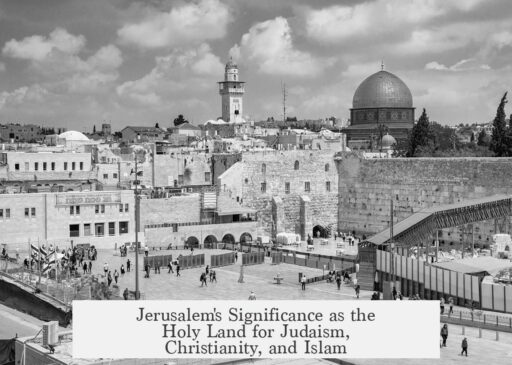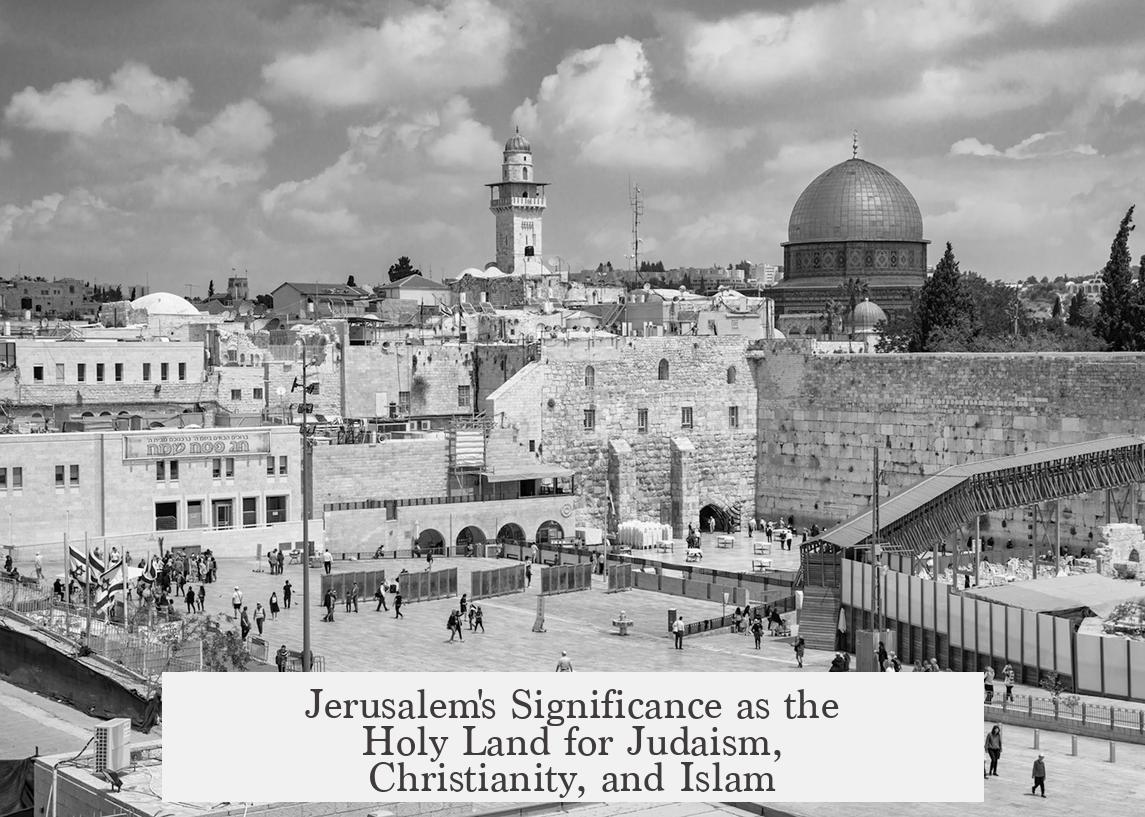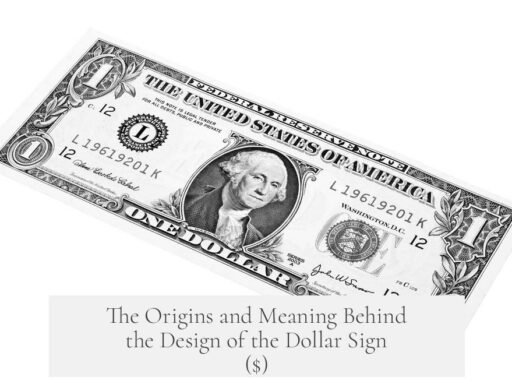Jerusalem is the Holy Land in Judaism, Christianity, and Islam because of its shared Abrahamic roots and its profound religious, historical, and cultural significance to each faith.
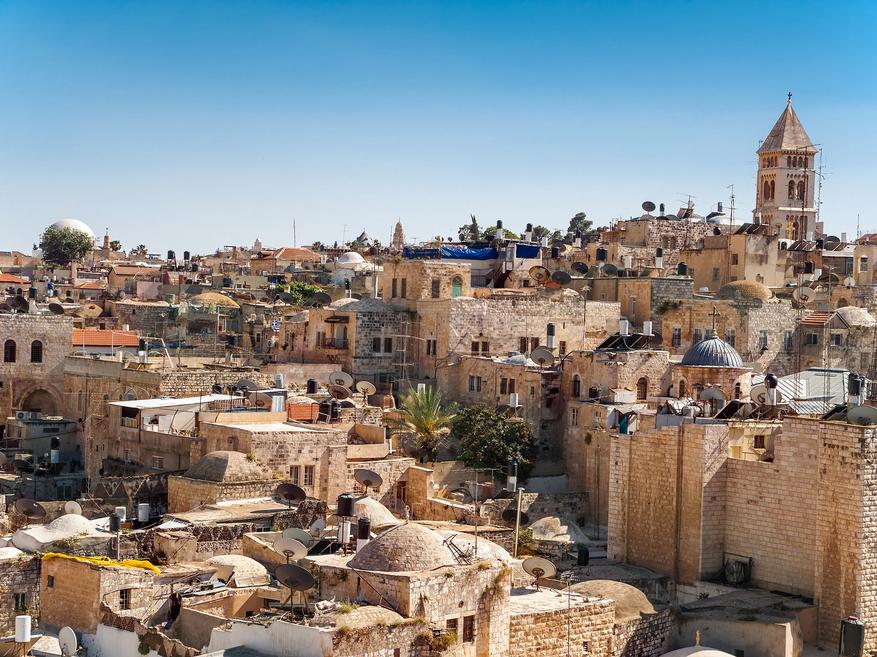
All three religions—Judaism, Christianity, and Islam—are Abrahamic faiths. They trace their origins to the biblical figure Abraham. Jews and Christians descend from Abraham’s son Isaac, while Muslims trace lineage from Ishmael, another of Abraham’s sons. This shared ancestry grounds their collective reverence for Jerusalem. Although each faith diverges in theology and scripture, they worship the same God and acknowledge many of the same prophets.
Judaism views Jerusalem as the site of the Temple Mount, the location of the First, Second, and a prophesied Third Temple. King Solomon’s First Temple originally stood here, followed by two successive temples. Today, the Western Wall, a remnant of the Second Temple, remains a sacred site and symbol of Jewish endurance. The Temple was once the center of Jewish worship and sacrifice, making Jerusalem the spiritual heart of Judaism, especially before the Roman destruction led to centuries of exile and diaspora.
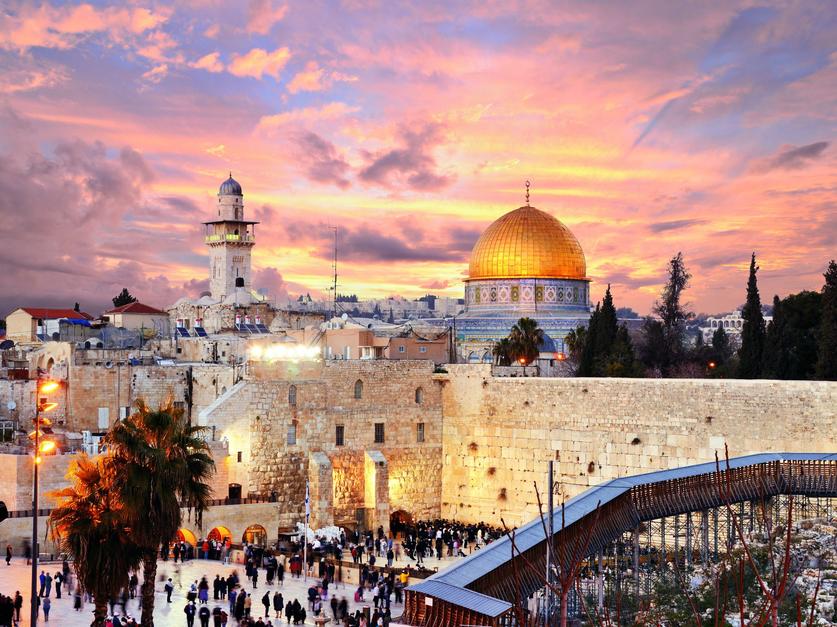
Christianity inherited its roots from Judaism and reveres Jerusalem due to events in the life of Jesus Christ. The Church of the Holy Sepulchre stands on the sites traditionally believed to be where Jesus was crucified and buried. This church is a focal point of Christian pilgrimage. Through history, Christians valued access to these sacred places regardless of political control. The religious importance of Jerusalem increased as Christianity expanded during Roman rule.
Islam regards Jerusalem as home to the al-Aqsa Mosque and the Dome of the Rock. These closely connected landmarks are vital in Islamic tradition. The Dome of the Rock marks the place where Muhammad is believed to have ascended to heaven during his Night Journey. Muslims honor many Jewish and Christian prophets, recognizing a shared prophetic tradition. Muhammad initially oriented prayer toward Jerusalem, reflecting the city’s spiritual value within Islam before the Qibla changed direction towards Mecca. Jerusalem is considered the third holiest city in Sunni Islam.
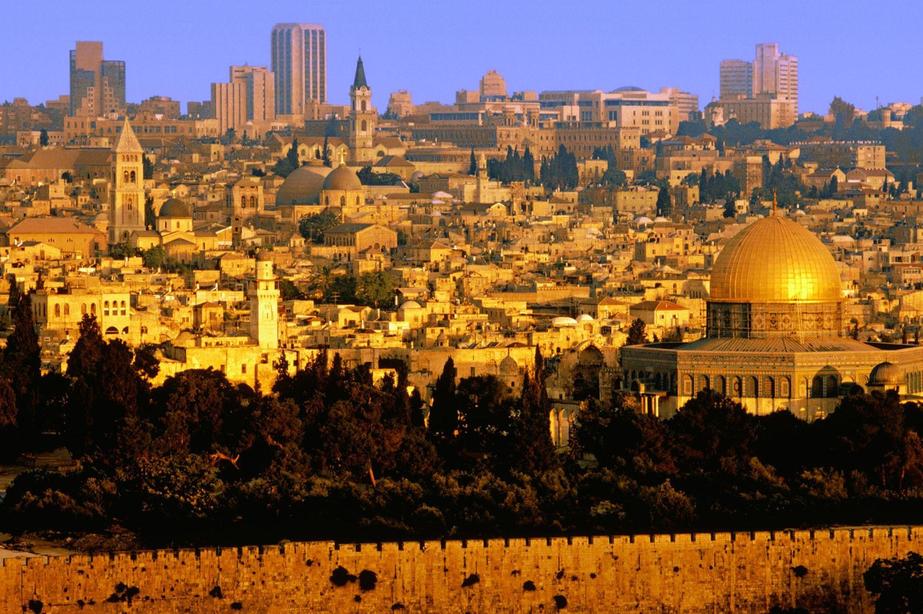
Historically, Jerusalem evolved from a commercial hub to a religious metropolis. Its early economic role included the vital trade of salt, essential in ancient economies. Over time, as religious narratives took hold, especially under Roman and later Islamic rule, Jerusalem became synonymous with divine presence and religious pilgrimage.
| Religion | Key Holy Sites in Jerusalem | Reason for Significance |
|---|---|---|
| Judaism | Temple Mount, Western Wall | Site of the Temples, center of ancient worship |
| Christianity | Church of the Holy Sepulchre | Location of Jesus’ crucifixion and tomb |
| Islam | Al-Aqsa Mosque, Dome of the Rock | Muhammad’s Night Journey and ascension |
While the sacred nature of Jerusalem is grounded in religious traditions, each faith also connects the city with broader theological and historical narratives. For Jews, it remains the prospective site of messianic restoration. Christians see it as the scene of Christ’s passion and resurrection. Muslims regard it as the site of Muhammad’s miraculous journey and a physical link to their shared Abrahamic past.
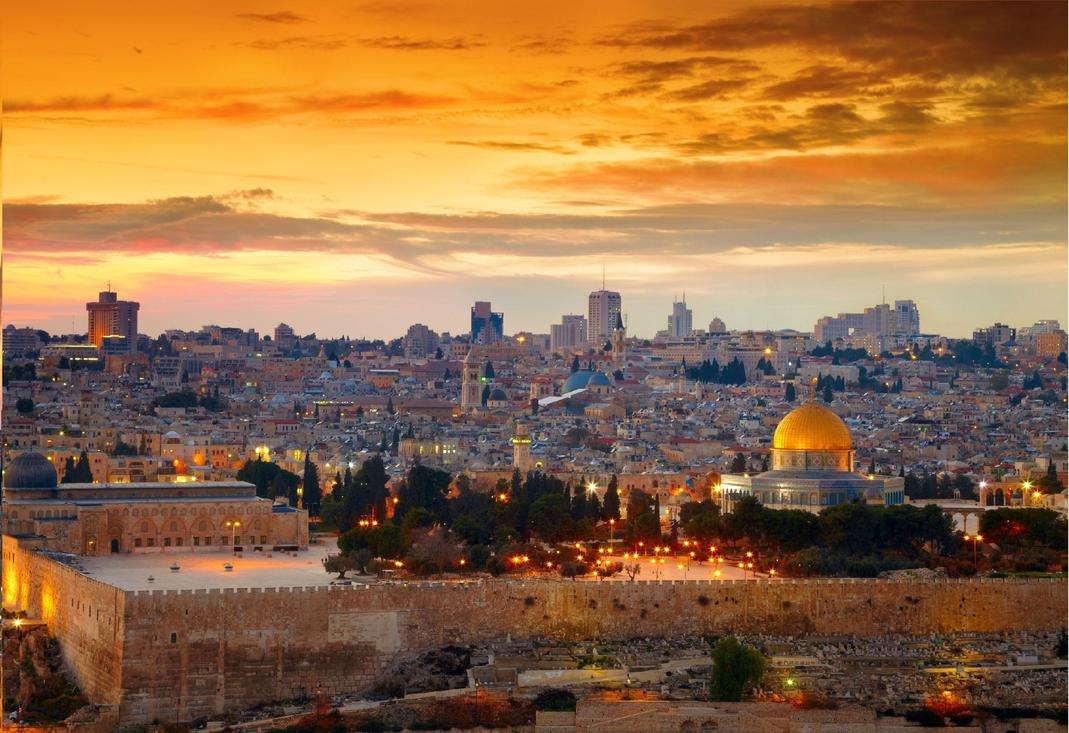
Modern dynamics sometimes complicate pilgrimage and control of the city. Historically, Christians welcomed pilgrims regardless of who ruled Jerusalem. Some contemporary evangelical groups emphasize Jerusalem’s role in apocalyptic prophecies, particularly regarding Jewish sovereignty.
- Jerusalem is sacred to Judaism because of the historical Temples and prophecy.
- Christianity reveres it as the site of Jesus’ death and resurrection.
- Islam honors the city for Muhammad’s ascension and shared prophets.
- All three religions share Abrahamic origins and connected religious narratives.
- Jerusalem evolved from a commercial center into a major religious capital over time.
Can Someone Explain How Jerusalem Is the Holy Land in So Many Religions?
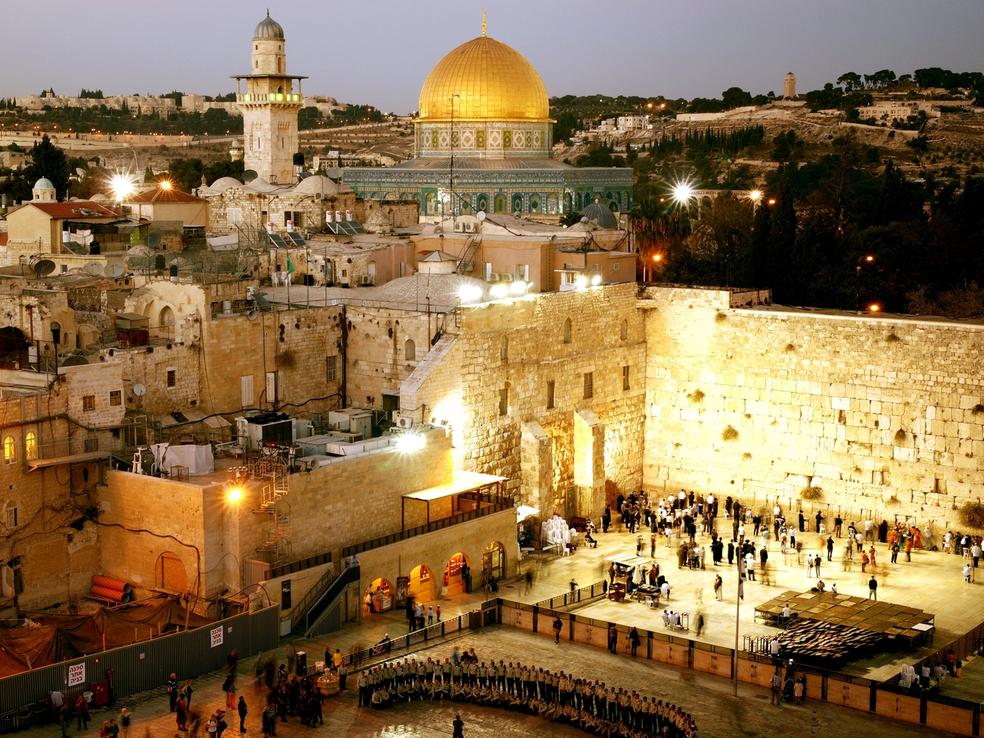
Jerusalem earns its title as the Holy Land for Judaism, Christianity, and Islam because it sits at the crossroads of shared history, faith, and deep spiritual significance, all rooted in their common Abrahamic origins. But how did one city become so central to three faiths that differ so much on beliefs? Let’s unravel this fascinating story together.
First off, all these religions—Judaism, Christianity, and Islam—trace back to Abraham. They’re called Abrahamic religions because they share this common ancestor and the belief in the same God, though they each interpret this connection in their own way. Judaism and Christianity descend from Isaac, Abraham’s son with Sarah, while Islam descends from Ishmael, Abraham’s son with Hagar. Think of it like family branches sprouting from the same tree, but growing in slightly different directions.
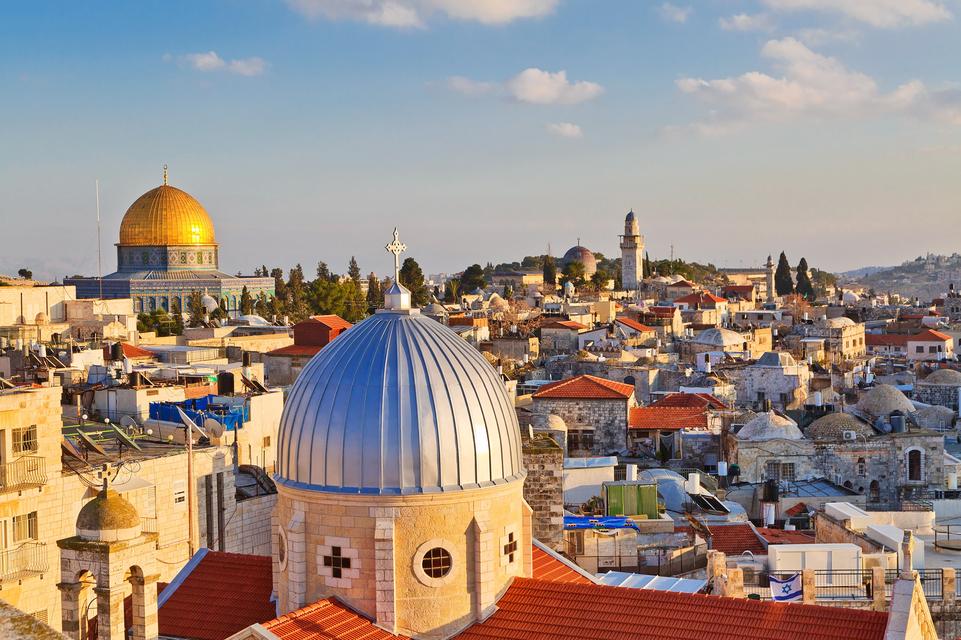
This common lineage explains why Jerusalem holds vital significance. The same God, worshiped through different lenses and religious histories, makes the city a spiritual center for many. It’s the small theological differences, not the core belief in one God, that create distinctions.
Judaism: The Temple Mount and the Heart of Jewish Worship
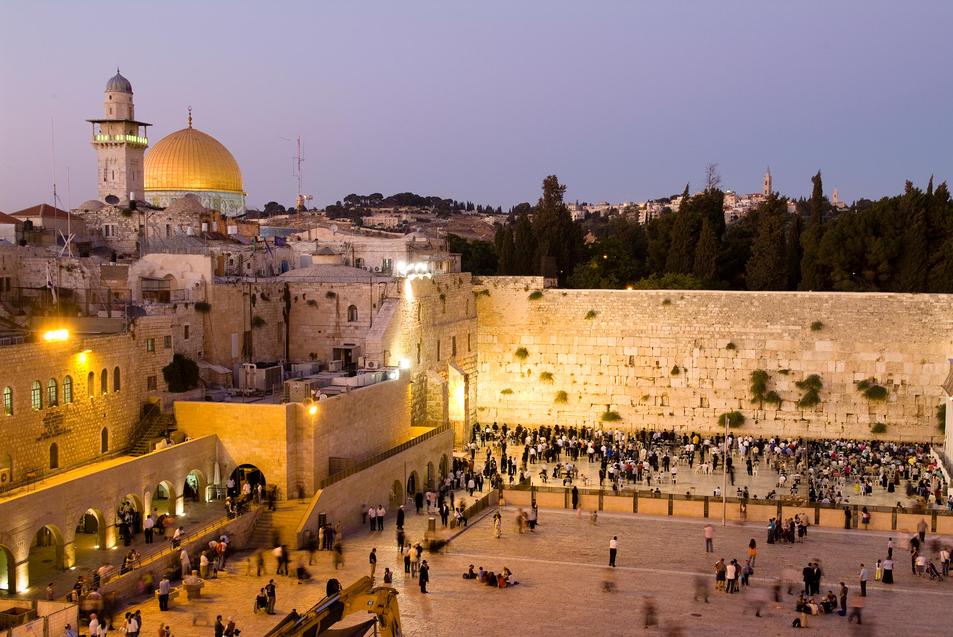
For Jews, the Temple Mount is the ultimate symbol of faith. This site hosted the First Temple built by Solomon—considered a marvel of the ancient world—and two successive temples after that. The Western Wall, often called the Wailing Wall, is actually part of the Second Temple’s retaining wall and remains a powerful place of prayer and longing. (Ever see someone clutching a note tucked secretly into the crevices of the wall? That’s modern faith in action.)
Jerusalem isn’t just about the past for Jews. It’s about hope. The city represents the place where the Messiah will come and rebuild the Temple. Losing the Temple thousands of years ago led to a deep cultural and religious shift. Before, sacrifices were central to worship; modern Judaism evolved in response to this historical loss. That longing for Jerusalem is woven into Jewish prayers and hopes, connecting past, present, and future.
Christianity: The Church of the Holy Sepulchre and the Land of Salvation
Christianity’s Jerusalem focuses on two tightly linked miracles—Jesus’s crucifixion and his resurrection. Both are believed to have happened right here. The Church of the Holy Sepulchre stands on this sacred spot, making it a magnet for pilgrims from all over the world.
Did you know the Crusades were partly about regaining access to Jerusalem? Control of this city mattered because Christians wanted open pilgrimage routes, not just religious dominance. Historically, Arabs occasionally welcomed Christian pilgrims, while the Turkish rulers shut down access at times, sparking conflicts and crusades.
In modern times, some evangelical Christians, mostly in the U.S., have a strong interest in Jerusalem’s fate, tying it to Biblical End Times prophecy. These views focus on Jerusalem’s political condition as essential to divine plans—reminds you how a city can mean different things depending on the lens you use.
Islam: Al-Aqsa Mosque, the Dome of the Rock, and Muhammad’s Night Journey
In Islam, the al-Aqsa Mosque and the Dome of the Rock stand as the third holiest sites after Mecca and Medina. They mark the place where Muhammad is believed to have ascended to heaven during his Night Journey. Imagine a spiritual elevator to the divine, starting right on the Temple Mount!
What’s fascinating is how Islam holds Jewish prophets in great esteem. Many figures revered in Judaism appear in the Quran, too, showing respect for shared roots. Muhammad deeply respected Jewish traditions and modeled his faith partly as a continuation, or correction, of previous ones. Initially, Muslims even prayed facing Jerusalem before the qibla changed toward Mecca.
Jerusalem’s Evolution From Trade Hub to Holiest City
Before it became holy, Jerusalem was a commercial center. It traded salt—ancient “white gold”—making it a bustling city in pre-Christian times. But religion gradually took over its identity. When Christianity spread under the Romans, Jerusalem’s biblical links elevated its spiritual status.
Then came Islam, which preserved and enhanced Jerusalem’s religious importance. The city didn’t lose its commercial heartbeat but gained new spiritual layers, embracing its Abrahamic heritage. It became a place where devotion and commerce entwined, enriching its character.
What Can We Learn From Jerusalem’s Role as a Shared Holy Land?
Jerusalem teaches us something unique: one city can hold profound meaning across different faiths, each interpreting it through its own story while sharing roots. This overlap could be a starting point for dialogue and respect rather than conflict. Can the common origins in the story of Abraham inspire cooperation?
For travelers and seekers, it’s a lesson in humility and curiosity too: exploring Jerusalem is like peeling back layers of history, faith, and culture all intertwined. Whether you visit the Western Wall, walk through the Church of the Holy Sepulchre, or admire the Dome of the Rock, you’re stepping into a living narrative of faiths bound by shared beginnings.
In summary, Jerusalem’s sacred stature across multiple religions springs from its shared Abrahamic roots, pivotal religious landmarks like the Temple Mount, Church of the Holy Sepulchre, and al-Aqsa Mosque, and its evolving identity from ancient trade center to spiritual hub. Its significance spans millennia and beliefs, making it one of the world’s most fascinating and complex holy places.
Why is Jerusalem considered holy in Judaism?
Jerusalem is home to the Temple Mount, the site of the First, Second, and the future Third Temple. The Western Wall remains from the Second Temple, making it central to Jewish faith and worship.
What makes Jerusalem important in Islam?
The al-Aqsa Mosque and Dome of the Rock sit in Jerusalem. Muslims believe Muhammad ascended to heaven there, so it is the third holiest site in Sunni Islam.
How do Christians view Jerusalem as a holy place?
The Church of the Holy Sepulchre marks where Jesus was crucified and buried. This makes Jerusalem a key pilgrimage site for Christians.
What connects these three religions to Jerusalem?
All three religions share Abrahamic roots and honor Jerusalem due to prophets and sacred events tied to the city.
How did Jerusalem become a holy city over time?
It started as a trade hub. Over centuries, religious events and control by Christians and Muslims shaped its sacred status.
